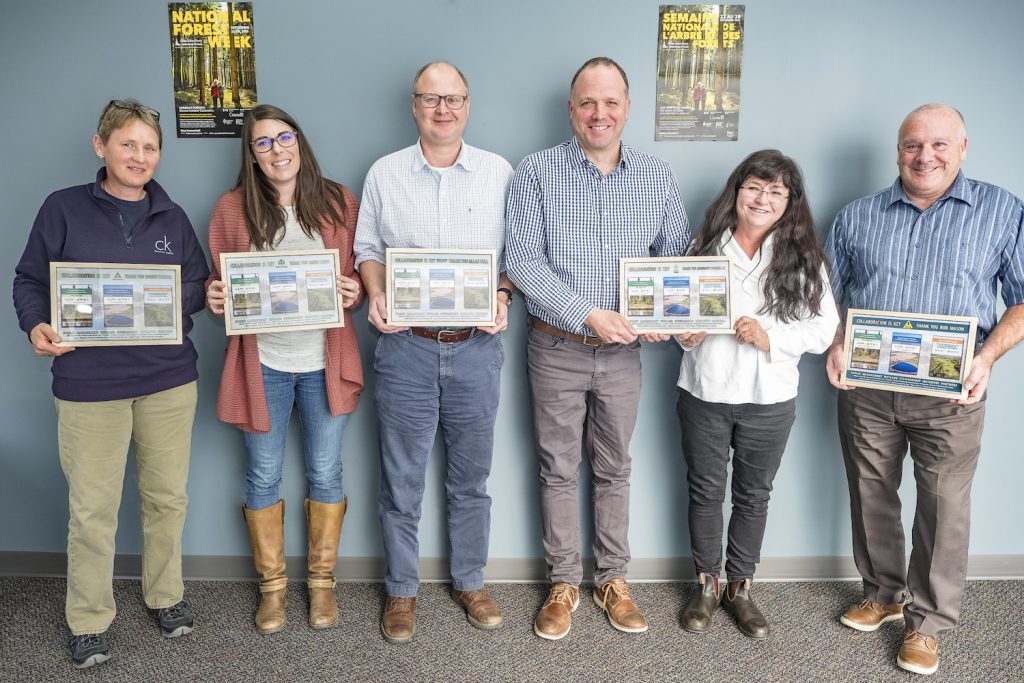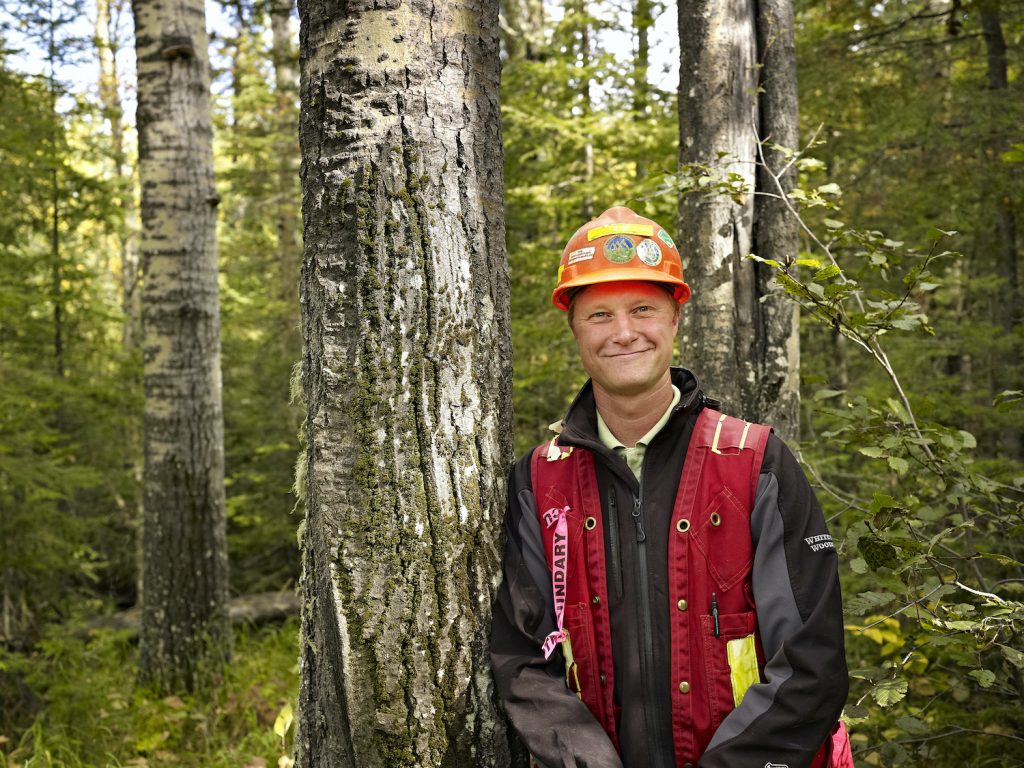
Features
Environment & Sustainability
Forestry
Ducks Unlimited appeals to forestry industry with extension of wetlands initiative
October 21, 2019 By Ducks Unlimited Canada
 FMWSI members in Edmonton on September 23, 2019 celebrating a successful three-year term as a partnership. From (L), Wendy Crosina (Weyerhaeuser Company), Laura Trout (West Fraser), Allan Bell (Tolko Industries), Kevin Smith (DUC), Margaret Donnelly (Alberta-Pacific Forest Industries) and Bob Mason (Millar Western Forest Products). Photo © DUC
FMWSI members in Edmonton on September 23, 2019 celebrating a successful three-year term as a partnership. From (L), Wendy Crosina (Weyerhaeuser Company), Laura Trout (West Fraser), Allan Bell (Tolko Industries), Kevin Smith (DUC), Margaret Donnelly (Alberta-Pacific Forest Industries) and Bob Mason (Millar Western Forest Products). Photo © DUC Canada’s boreal forest is an impressive 1.3-billion-acre region spanning from the north-west border of the Yukon, all the way to Labrador, and is the largest contiguous forest landscape on Earth. It is rich in biodiversity, harbouring 85 species of mammals, 130 species of fish and 300 species of birds.
And it is home to 85 per cent of Canada’s wetlands – important forest features that play an essential role in maintaining water quality and supply, regulating global climate, and providing a home to the iconic woodland caribou and endangered whopping crane.
But a changing climate and more human activity are putting pressure on Canada’s boreal wetlands. Ducks Unlimited Canada (DUC) has set ambitious goals of conserving enough boreal habitat to sustain 11 million ducks – 75 per cent of the boreal region’s total population – over the next 10 years. To be successful, it knew it needed to enlist the help of other forest users, including industry.
Conservation through collaboration
The Forest Management Wetlands Stewardship Initiative (FMWSI) launched in 2016, a unique partnership between DUC and forward-thinking members of the forest products sector: Alberta-Pacific Forest Industries Inc., Canfor, Forest Products Association of Canada, Millar Western Forest Products Ltd., Tolko Industries Ltd., West Fraser and Weyerhaeuser Company. The FMWSI members recognize the importance of Canada’s boreal forest and the critical roles wetlands play within these forests. Its goal is to pool resources and expertise to advance wetland stewardship and sustainable forest management in Canada’s working forests, where industrial activity is permitted.
New resources for wetlands management
In its first three years, FMWSI members worked together collaboratively to identify gaps in current knowledge and practices in wetlands management. With this newfound information in hand as well as relying on the diverse skills and knowledge sets of all members, they have created a series of practical guidebooks to help forest practitioners apply the latest science-based data into their day-to-day operations:
- Forestry and Waterfowl: Assessing and Mitigating Risk Practitioner Guide
- Guiding Principles for Wetland Stewardship and Forest Management Practitioner Guide
- Wetland Best Management Practices for Forest Management Planning and Operations Practitioner Guide
To promote widespread adoption of best practices, these resources are available for free download on the DUC website. As well as helping companies minimize environmental impacts on wetlands, it is expected this knowledge will also improve the safety of forest workers when operating in or near wetlands, and potentially reduce costs by helping companies choose the right infrastructure once conditions have been assessed.
Knowledge and training opportunities
The FMWSI builds upon long-standing relationships between DUC and forest sector partners and takes advantage of the diverse skill and knowledge sets of all members. The partnership has proven valuable on many levels. Not only has it produced useful resources but provided many opportunities to exchange knowledge and promote greater mutual understanding.
“Al-Pac has worked with DUC over the last 25 years to inventory and enhance our understanding of boreal wetland systems through a variety of research and monitoring activities,” says Margaret Donnelly, Al-Pac’s forest ecologist. “The FMWSI initiative builds on this foundation, through the development of a series of implementation guidebooks and innovative best management practices, to promote healthy forest and wetland ecosystems for future generations.”

Foresters know their management area better than anyone. Supplied with the right knowledge, they are an excellent addition to helping mitigate damage to wetlands through sustainable forest management. Photo © Millar Western
DUC is also delivering Wetlands Training – online, in classrooms and in the field. The training covers and supplements the information provided in the guidebooks, addressing topics such as boreal wetland identification, an essential skill set for anyone working in and around boreal wetlands. An additional bonus – the training counts towards continuing education credits for certain professional designations.
Millar Western is one of the companies that is taking advantage of the training, as well as other DUC services. “We are working with DUC to review operational procedures to ensure consistency with wetland best management practices and to provide wetlands training to our Woodlands team,” says Bob Mason, Millar Western’s chief forester. “There is no doubt that FMWSI is making a positive difference in our understanding of how we can better operate in and around wetlands.”
Committing to a second term
Building on the success of the first term, members of the FMWSI announced during an event held in September that they would be committing to a second three-year term. Going forward, members will focus on implementing and operationalizing this work as they to continue to fill information gaps.
For DUC, FMWSI is a positive model of collaboration and an effective way to address conservation challenges. “Despite eight different mandates, missions, and objectives, we were all able to find common ground and work towards successfully conserving the wetlands of Canada’s boreal forest,” says Bev Gingras, head of Boreal Conservation Programs with DUC. “We are very proud of the work we’ve accomplished and looking forward to FMWSI’s next chapter.”
Print this page